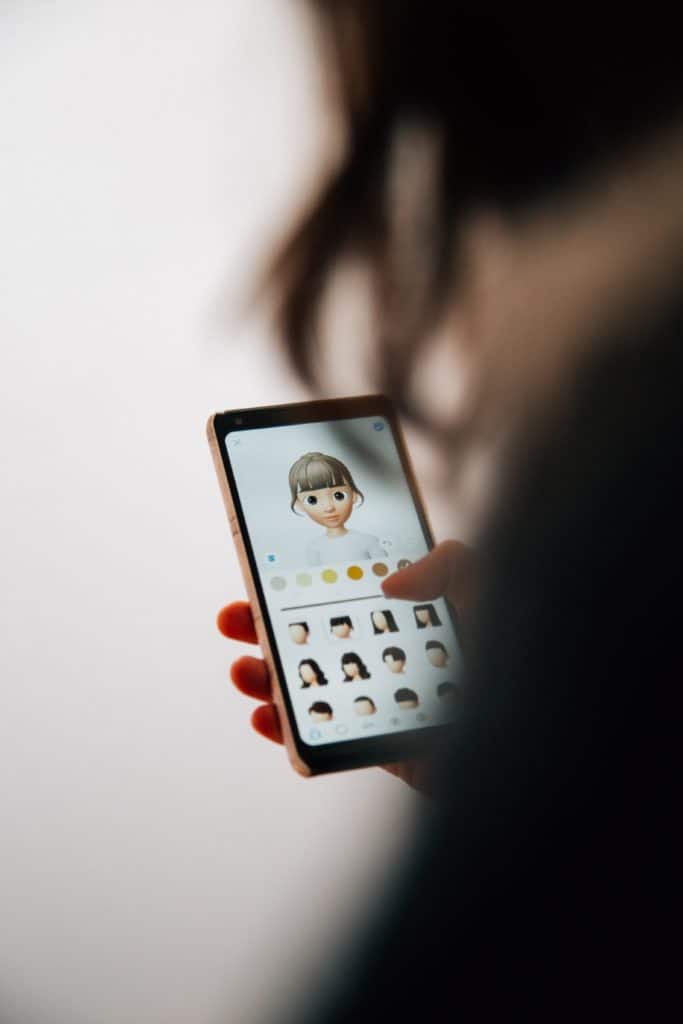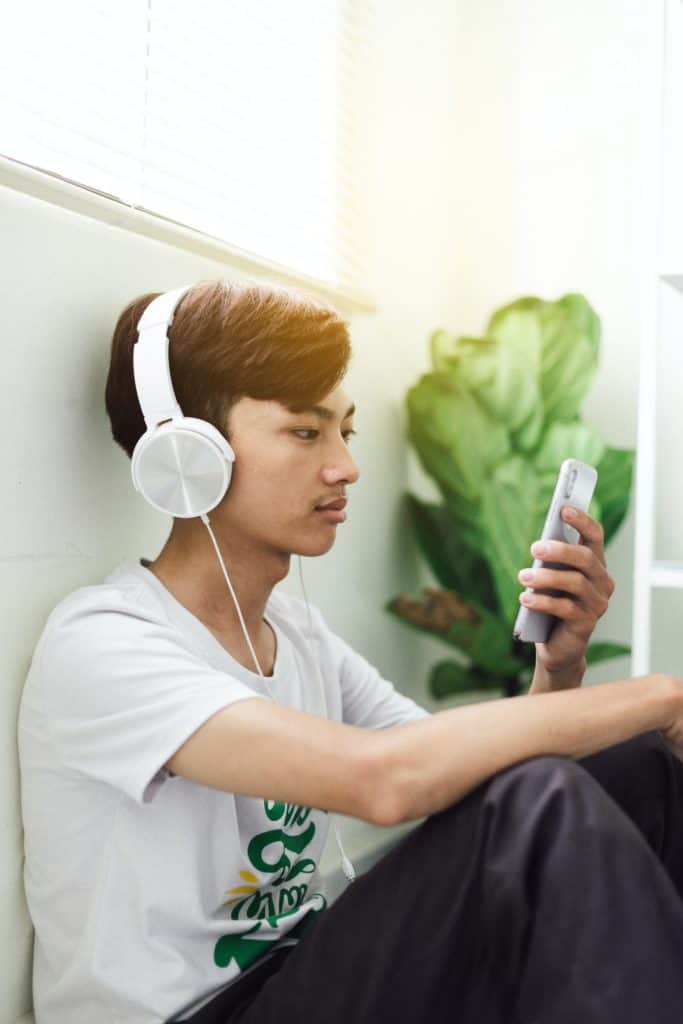Parents know very well the pressure to let their children have a social media account even before the legal age of thirteen. As mum, I would argue that the limit should be flexible and it all depends on the particular family and the child. Although as a researcher, I would argue that from a developmental point of view thirteen is still far too early, and even 14-15 is still not ideal.

In 2016, when I started visiting schools in London with my workshops, only 5-10% of 11 year olds had a smartphone or a tablet. Four years in and the numbers grew drastically. I won’t be surprised if currently at least 5-10% of 5 year olds own a smart device. Despite that the age for getting a smartphone drops increasingly, there is still a watershed, at least, a formal one. In 2020 the legal age for joining Instagram, Tik Tok , Twitch and other social media platforms is 13. Disturbingly, many families disregard the minimum age requirements. For those who choose to comply, opening the social media account becomes the new rite of passage. Yet, from a perspective of child development, 13 is the worst age for social media. It is far too early. This realisation frist came to me after talking to teenagers themselves.
Once I asked a class of thirty 14-15 year olds to anonymously pick a number of mood cards that would describe their feeling towards social media. Half of the class chose “fun”, a third chose “creative”, majority choose “stressful” and ”addictive”. But what I didn’t expect was that every single one of the students chose “I hate it” (I even ran out of the cards). I spent time chatting about the response and discovered a common pattern. Majority joined social media as soon as they were allowed to. Most of them got no other guidance, apart from a brief explanation from older peers or siblings. Excited in the beginning, they fatigued from it quite soon. The 14 year olds got confused by social dynamics (which are never easy for teens, but the online world complicates it even further). They felt drowning in endless videos, overwhelmed by the pace and the demands of constant challenges and fads; exhausted by the intensity of the exaggerated friendship dramas. After realising that they are unable to control it, quite a few of them tried to sign out for a little bit or to delete their accounts altogether. But the social pressure and fear of missing out, the infamous FOMO, kept bringing them back to the very thing they described as “soul-sucking”. How did this happen? Let’s go back a few years.

The social pressure to be on social media platforms is enormous, especially for pre-teens. An own account is viewed by them as a social token. If the child is “unlucky” to have parents who respect the platform guidelines, they would have to withstand the fear of missing out on communication between peers and even risking to be labelled “uncool” and an outcast. We have experienced the pressure in our family too. I am very familiar with the phrase: ”Mum, but I am the only one without (something)”. I had to learn to take the phrase with a pinch of salt. When a child says “everyone” it often means one or two “cool kids”. When the child says “I am the only one” it means “I don’t want to be excluded from that group”. I had to learn to trust my parental gut. I used this as an opportunity to highlight the importance to be resielinet in the face of social pressure and the dangers of herd mentality. It is in itself an important lesson for pre-teens. But eventually, I succumbed and allowed them to have their own accounts at thirteen, but under a very tight supervision.
Most of the adolescents I spoke to expressed regret about the lack of parental involvement in their online lives. They would never admit it openly (at least mine never did), but they need us there. Not as a hovering chaperone-detective, but as a genuinely interested and trusted adult. Children need supervision and, sometimes, a firm “no” from us (I failed at this a couple of times and learned the lesson).
Dear parents, this is not an area where we can let our children explore by themselves. Internet is not a quiet cul-de-sac in a residential area. Not our own backyard. One doesn’t need to be a scientist to know that it is impossible to control what our children see on social media. If you are not ready to have a conversation about pornography, racism, sexual exploitation, drug abuse and suicides; if you think that your child is too young, then don’t let them roam online. If sitting behind your tween’s shoulder and checking every comment, every interaction is not an option, then do not let them have a social media account. Developmental psychologist Catherine Steiner describes social media as “too much and too early”. In her thought provoking book “The Big Disconnect” she boldly states that the unmonitored access to social media steals innocence, fast-forwards childhood and can even be likened to child exploitation. This is heavy.
But how about friendships? How about staying in-touch and being connected, sharing moments of life and a healthy amount of silliness? Don’t teenagers need a social space for healthy development? They absolutely do! Recent studies into the mental wellbeing of adolescents revealed that social media can also serve as a healthy outlet and a place for venting of thoughts and feelings. The online world can provide a sense of support for isolated and lonely teenagers. That’s why I wouldn’t recommend to cut the social media out of a struggling teen’s life, unless there is a healthy and natural way to fill the social vacuum.

But this is only one part of the story. How about other psychological needs of teenagers? According to expert in the young Internet users, Dana Boyd, two main needs of teens are socialization and identity play. And that’s exactly what they do online. Through posting, scrolling, choosing filters, taking part in the online challenges they are figuring out who they are (identity) and what is their place in this world (socialization). However, this comes at a cost. Another big name in developmental psychology, Erik Eriksson, describes the need for so called moratorium – a safe semi-private playground away from the direct parental supervision. In order to learn the cause and effect, teenagers need a place of relative freedom, where they can try new things, fail and make decisions which affect them, but do not carry onto the rest of their lives. Internet is hardly the moratorium. It is neither safe nor private. Consequences of the mistakes last forever. Every bad decision, every comment, every experiment with one’s identity becomes part of their digital footprint, practically engraved forever in their online reputation. Teens live under the weight that anything they do might backfire at a future job interview, romantic relationship or university application. It’s a skeleton in the closet that has a life of its own and can start haunting at any moment.
But this is the world we live in. I don’t think there is a way to reverse the technological progress and go back to the pre-digital life. However, with some effort, we can build a different culture. For instance, in order to minimise the peer-pressure on our children, we can create support bubbles from the like-minded parents. I call it “reverse herd mentality”. If none of the friends is allowed Tik Tok, there is much less interest for the child. Also, it is important to provide screen-free alternatives which will satiate the need for moratorium. I suggest facilitating unstructured and loosely supervised opportunities to hang out. And lastly, investing into the mental health and resilience of the children will mitigate the desire to use the social media as a source of validation and psychological escape.

The main message of this post can be summarized as following: despite certain benefits, the social media environment is neither safe nor healthy, especially for a developing mind. It is in the best interest of psychological development and mental wellbeing of teens and pre-teens, that parents delay the access to an own social media account beyond the legal age which is defined by the platforms. When parents decide that their child is mature enough to handle the stress of the online interactions and has been thoroughly trained in the Internet safety (response to sexual grooming, disturbing content, cyberbullying, infringement on privacy) an own social media account may be opened, but with close monitoring (for younger teens) or regular spot checks (for older teens). Finally, as a part of healthy digital culture, parents should take an active stance in their children’s online lives and provide guidance, supervision and support.
